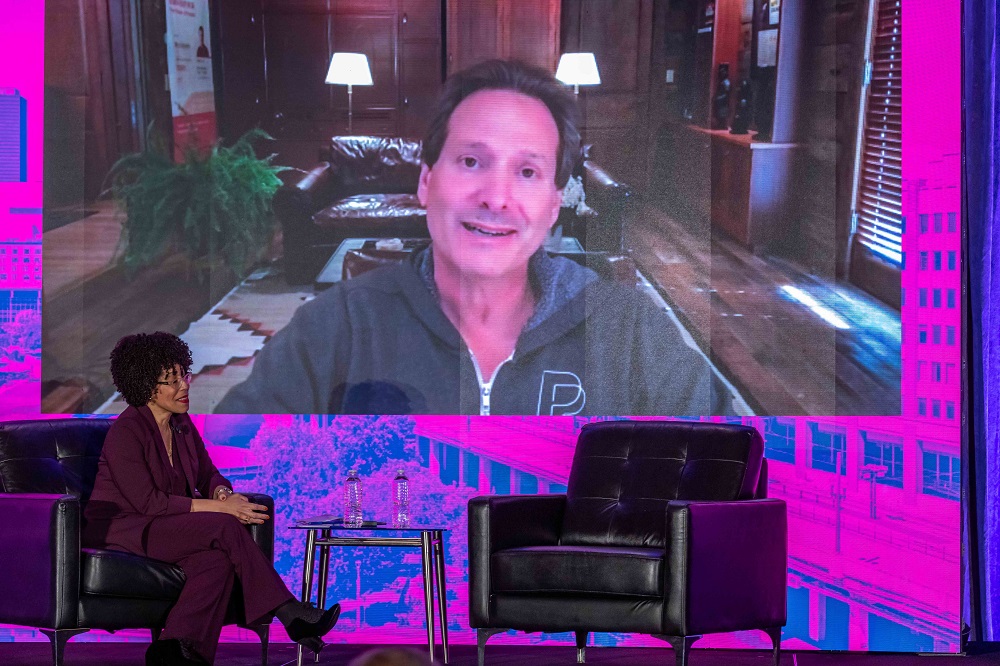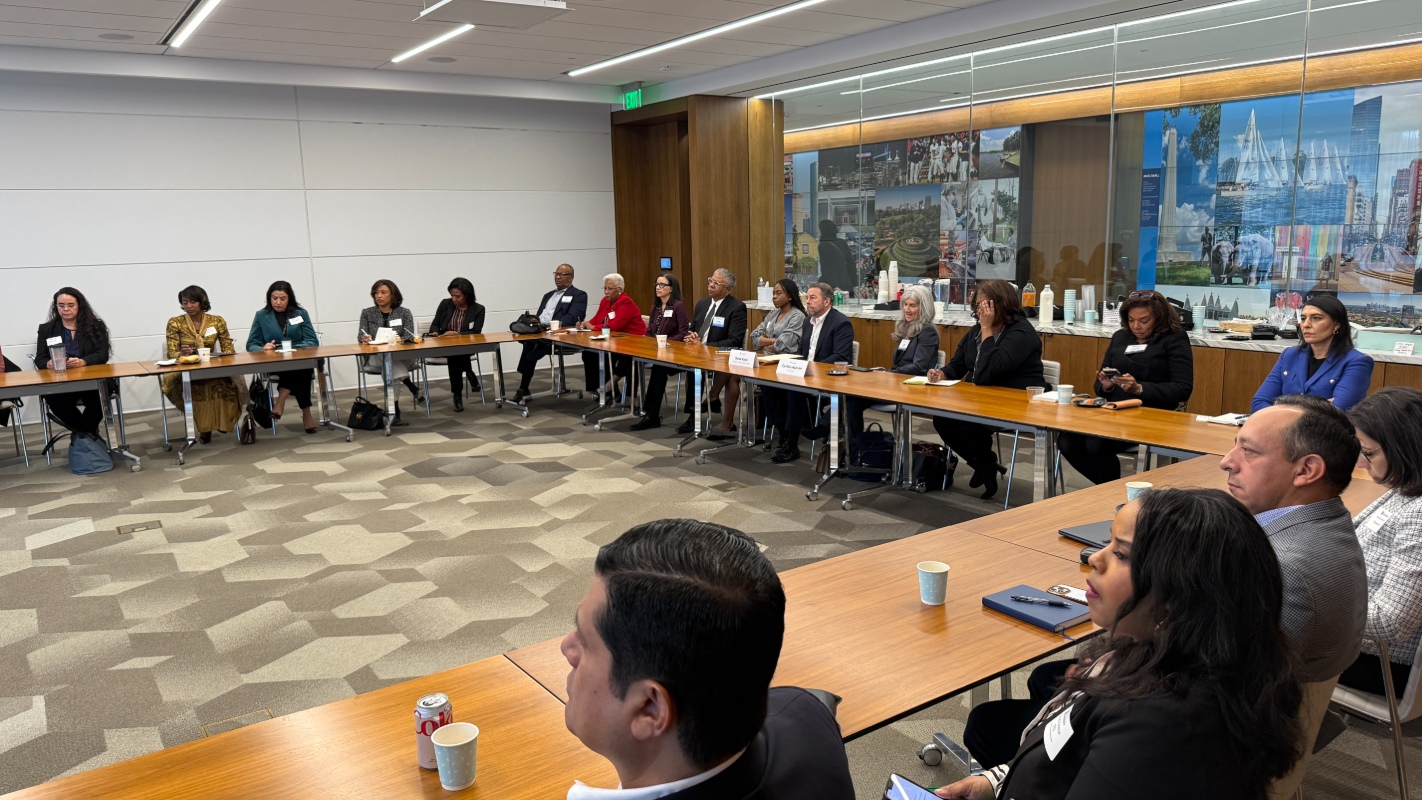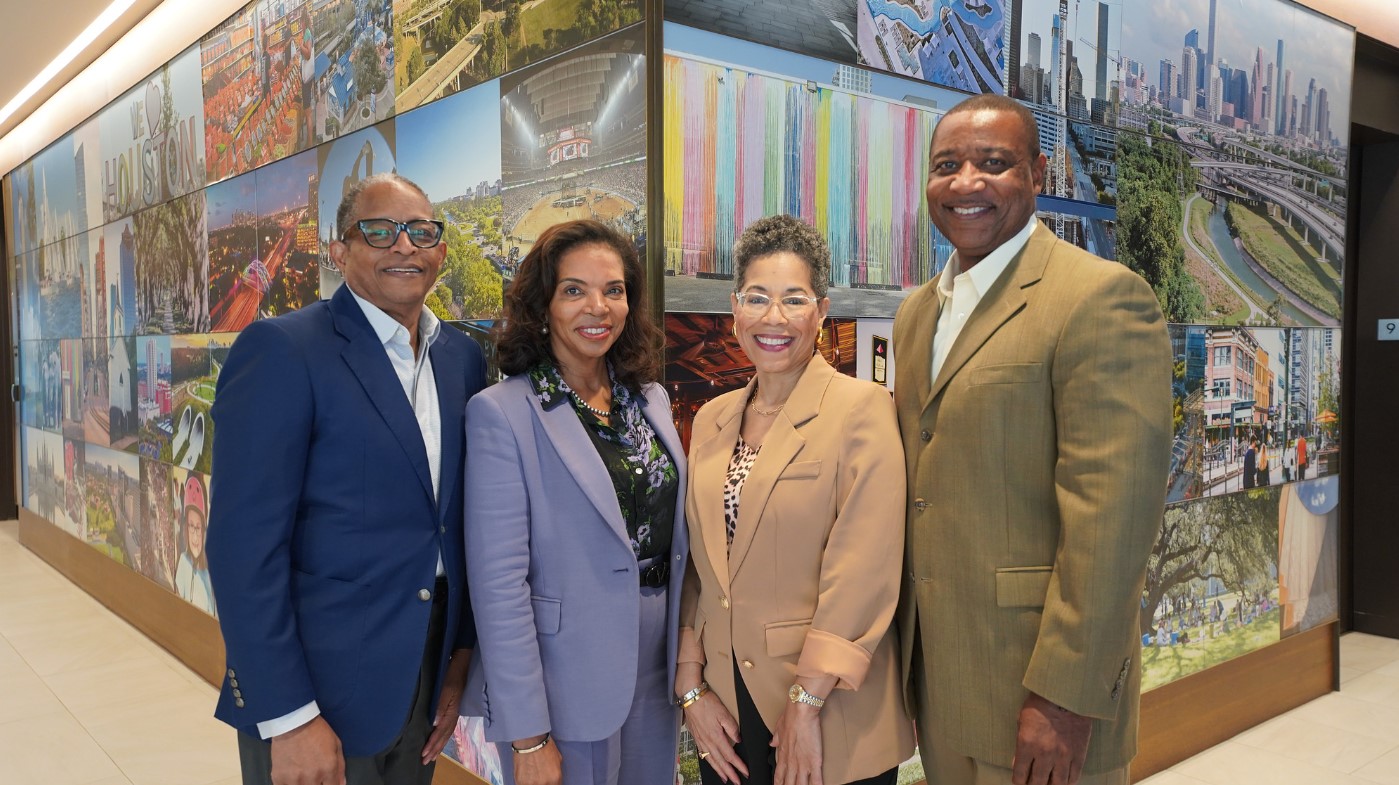PayPal CEO Dan Schulman Talks Values-Based Leadership and DEI at DiverseCity Summit
Published Oct 29, 2021 by A.J. Mistretta
Dan Schulman’s first job as a young adult was driving a truck after getting rejected from multiple colleges he applied to. Later, he landed a job as an assistant account executive at New Jersey Bell while attending night school at New York University. Such humble beginnings helped shape the attitude of one of the most successful leaders in the tech world. Today, Schulman is CEO of the fintech giant PayPal where he’s leading the charge to democratize financial services and e-commerce. He’s also widely recognized for his commitment to social change, and his passion for equality, justice and basic human rights.
Schulman discussed the importance of values-based leadership, the big steps he took to make his company’s workforce more financial stable and other topics during a fascinating fireside chat at the Partnership’s DiverseCity Summit this week. He spoke with Partnership Senior Vice President of DEI LaTanya Flix. Here are a few key takeaways:
Values-Based Leadership
Schulman said he’s learned that the single biggest competitor differential for his company is the caliber of people who work there and the passion they bring. “Your company’s mission needs to be supported by a set of values and those need to be something that guide your decisions as a CEO,” he said. “They need to be more than words up on a wall—they need to be lived.”
Schulman said embracing diversity and fostering an inclusive environment is a key value for PayPal—one that’s guided his actions as CEO for the last seven years.
As a major company, it’s impossible for PayPal to avoid the culture wars that have become pervasive nationwide, Schulman said. “We have to make hard decisions. People can disagree with those decisions…But that’s what it means to be a responsible CEO, it’s values-based actions.” He added that consistency is critical. “Our employees understand what we’re going to stand up for. They may not agree with every public stand we make but we are very consistent about it.”
“We think that standing up against discrimination of any kind isn’t a red issue or a blue issue, it’s a red, white and blue issue,” Schulman said.
Thinking Beyond the Bottom Line
It’s not easy being the CEO of a major company these days, Schulman said. Employees, customers, board members, shareholders and other constituencies all have expectations that often don’t align. “But we need to stand up for much more than making money,” he said. “I don’t believe that the ideas of profit and purpose are at odds with one another.”
Taking a Hard Look Inside
Though aware of the statistics that show many Americans struggle to make ends meet, Schulman said he naively thought that wasn’t the case at PayPal. After all, his company pays its thousands of employees at or above market rate for their wide range of roles. But after conducting a poll, he found that many entry-level employees at PayPal were struggling with their finances and having to make tough decisions about health care and other necessities. For a large segment of the company’s workforce, net disposable income—or income after paying for basic needs such as food and shelter—was between just 4% and 6%.
That led to conversations with nonprofits and other groups and the realization that PayPal should try to get net disposable income for its workers to 20%. It took a series of conversations with the company’s board and shareholders, but changes were implemented. Today, no PayPal employee has less than 18% net disposable income.
“This was an investment in our people, and it was more important than any marketing or anything else we could invest in as a company, because the foundation of our success rests on the shoulders of our employees,” Schulman said. Following the changes, PayPal’s attrition rate dropped, as did training costs, while productivity rose.
“Creating financial health for our employees was thinking about the future of our company,” Schulman said. “But also, how do we move from being a good company to a great company over the medium and long term.”
“A Movement Over Time”
Schulman is one of the founders of the Southern Communities Initiative (SCI). Launched in April 2021, the initiative aims to accelerate the deployment of corporate resources into six southern communities, including Houston, that are home to roughly 50% of the nation’s Black population. In the aftermath of the George Floyd murder, Schulman wanted to determine the best way to fight inequity and thought PayPal would give a few million dollars to organizations working on the front lines nationwide. “Someone said to me: ‘this needs to be more than a moment in time, it needs to be a movement over time.’ And it made me think: is there more I can do?”
PayPal made a $535 million commitment to “advance racial equity, sustain and strengthen underrepresented businesses and communities, and help address the economic underpinnings of racial injustice,” the company said in a statement earlier this year. By working alongside other companies through SCI, PayPal is making a bigger impact.
“Working together instead of separately lets us experiment with what works best—starting with these communities in the South,” Schulman said.
The fireside chat capped off the first day of the DiverseCity Summit where the Partnership presented the findings of the region’s first Equity & Inclusion Assessment. Learn about the findings of the assessment and the next steps through the Partnership’s One Houston Together commitment here. Get additional information about One Houston Together here.
 The Houston Report
The Houston Report




















